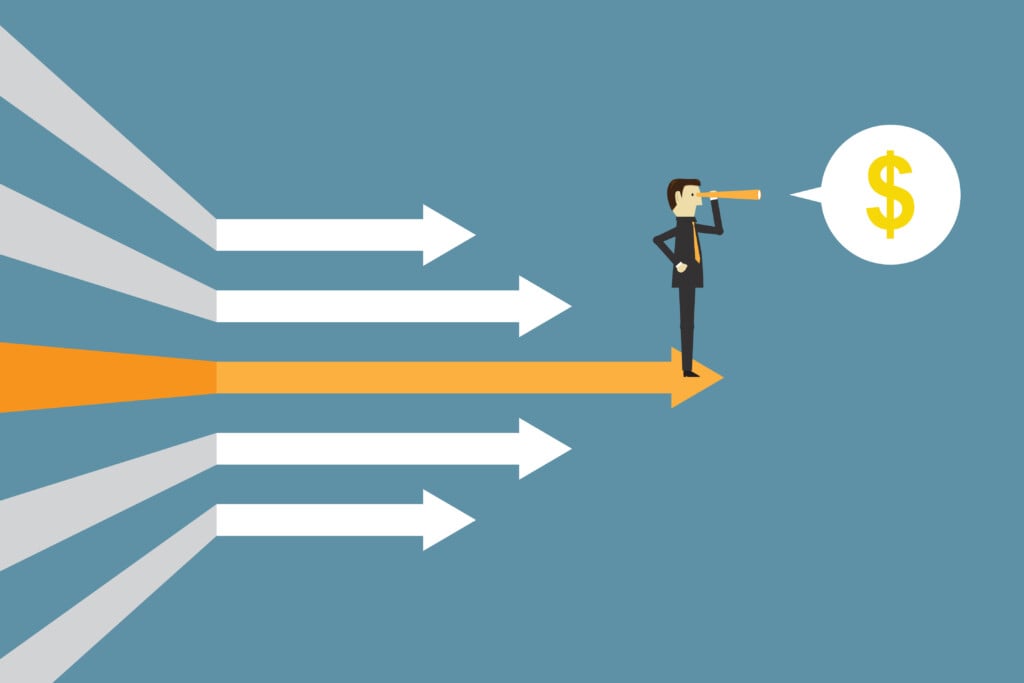The Careerist: Should I Jump Into the Gig Economy?

Q: I’ve got a steady job making decent money, but it’s 40 hours/week in a cubicle. Some of my buddies are skipping the “office grind” for freelance work or are jumping on with Uber and Lyft. They’ve got flexibility and are making more money than I am. It looks like a sweet deal and I’m tempted. What do you think: Should I stay or should I go?
A: Senior writer Lavonne Leong covered the local version of the gig economy in the February 2016 issue of Hawaii Business and, depending on who she talked with, it was either a godsend for both workers and employers, or just another way for companies to exploit the working stiff.
No one seems to know exactly how many people have given up a steady job for a gig since the U.S. government quit tracking those numbers in 2005, but estimates put the size of the gig workforce at between 16 and 22 percent of the total workforce. And while technology has opened opportunities – think Uber, Lyft, AirBnB and Craigslist – freelance or self-employed workers have been around for decades.
Before you abandon your 401(k) and regular paycheck, take it from someone who was gigging before gigging was cool – a steady job comes with some sweet benefits: A paycheck magically appears in your bank account every two weeks (handy when there’s rent to pay), health insurance is part of the deal, and your employer kindly withholds all those pesky taxes and pays them on your behalf.
Talk with most Uber or Lyft drivers and they’ll tell you they started part time, just like most others who eventually stepped off the 9-to-5 track to be their own bosses. Try it for a while – maybe nights and weekends – to see if you like it and what the money really is. Remember to factor in your costs of doing business, including setting aside money for taxes.
Another thing to consider: Is there room for advancement at your company? If so, that might be more inviting than running your car into the ground as a ride-share driver for the next decade.
Yes, there’s something to be said for being your own boss, sleeping late and skipping work for the beach. But it’s more likely that you’ll sleep late because you were awake all night worrying about money, battling Pitbull’s “Time of Our Lives” earworm: “I knew the rent was gonna be late about a week ago.” The grass is rarely greener, and the rent always has to get paid.
Q: I work for a mid-size company, and our CEO runs an 8 a.m. aerobics class three days/week as part of our wellness program. While it’s not required, it’s pretty clear all managers are expected to attend. I prefer to sweat alone in my old, ratty gym clothes, not in new, spiffy spandex alongside our CFO and head of marketing. What do I do?
A: C’mon, they say sitting is the new smoking. Get up and get active. You’ve got to sweat a little to get ahead.
Employers implement wellness programs because they work. Employees are healthier, morale rises, absenteeism shrinks and productivity spikes. Look around town and almost everyone is in on the action. Punahou holds weekly Zumba classes for its faculty and staff. Pali Momi Hospital offers a boot camp program, and Howard Hughes Corp. makes surfboards available to its staff for mellow mornings at Kewalos before a long day at work.
At Atlas Insurance, benefits and wellness consultant Vivian Haitsuka walks the walk. Before pitching her clients on the value of wellness programs, she and her colleagues launched one at Atlas, including Walk Wednesdays (part of a Boot Camp competition with the parent company), salad days (where everyone brings their favorite salad ingredient and they toss them all together for lunch), chef demos and farmers markets (where they load up on fresh produce and learn how to prepare veggies they’ve never seen before).
“We find everyone has an innate competitive spirit,” she says, “So we mix it up to find things that everyone can get excited about.”
As a manager, you’re expected to toe the company line. If sweating with the boss isn’t your thing, consider talking with the wellness coordinator and coming up with an option that better suits you and others. “Not everyone likes to get physical,” Haitsuka says. “Maybe they’d prefer meditation or yoga, or start with ergonomics and stretching.” Wellness programs are the new office water cooler. Skip it at your own peril. And, really, couldn’t we all afford to get a bit healthier?
Q: I came home after getting my law degree on the Mainland and now have a good job as an associate with a big law firm. My parents are proud of me, but here’s the thing: I hate practicing law. It’s tedious and I don’t feel like I’m making a difference. I’ve got school loans to pay, so no chance of me quitting and taking off around the world to “find myself.” Do I have options or am I forever handcuffed to the legal treadmill?
A: You lawyers – always fretting and analyzing everything. If you don’t like that legal treadmill, hop off! If mom and dad worry, tell them the Dean made you do it. Seriously.
When I took your question to Dean Aviam Soifer at UH’s Richardson School of Law, he reminded me that UH got its law school funding after William Richardson, chief justice of the Hawaii Supreme Court, convinced state legislators that a law school would “foster leaders in Hawaii, not just lawyers.”
“Community connections are vital,” Soifer says, “And lawyers are a vital part of that community, whether practicing law or working in other fields.”
He points out that a third of UH’s law graduates go on to work in government, a third do legal clerkships, and another third find themselves in small private practices or in leadership roles with nonprofits. UH even has a medical-legal partnership, where law students and medical practitioners team up, helping a family whose child has chronic asthma, for example, explain to their landlord why changes to the home would greatly benefit the child’s health.
“We teach about context and problem solving,” he says, “and we convey to our students that you can get your law degree and still pursue your heart’s desire.”
Want more proof? Ask Josh Stanbro, director of environment and sustainability programs at the Hawaii Community Foundation. Josh got his law degree from Berkeley, where his stint interning with the East Bay Area Community Law Center changed his career. “My mentor there, also a lawyer, was leading a citizenship empowerment group and I thought ‘Wow! You can do this?’ ”
Once he had that Berkeley sheepskin, Stanbro never gave the big firms a thought, instead forging a career in environmental and sustainability issues. “A law degree is essentially a pass to allow you a chance to do the stuff you really want to do,” he says, “and be able to decipher statutes for the community you’re working with.”
As for the family and the school debt, Stanbro reports that his grandmother (who helped fund his law school) was dubious at first, but when she saw his success – and the work he was doing – she was so inspired she became a donor to the projects he works on. Regarding the debt, Dean Soifer has a hot tip: a federal loan program that wipes out your law school debt after 10 years of work with a nonprofit or government organization. Who knows? Maybe you could then take off and find yourself after all.
ASK THE CAREERIST
Have a question about work, life and that place in the middle where it all gets tangled up? Ask me at: feedback@hawaiibusiness.com






